 Lynn Bry, M.D., Ph.D. directs the Massachusetts Host Microbiome Center, is an Associate Medical Director in the Department of Pathology at Brigham and Women’s Hospital (BWH), and Associate Professor of Pathology at Harvard Medical School (HMS). As Director of the Mass. Host-Microbiome Center, she and center faculty have supported >100 projects from groups investigating the role of the microbiota in health and disease. Her laboratory studies the genomic and metabolic interactions among microbes that contribute to maturation of the immune system, host metabolism, and susceptibility to infections. She has been awarded multiple patents for the application of therapeutic microbiota in the prevention and cure of human food allergies, treatment of C. difficileinfection with defined microbiota, and novel biomarkers to detect microbial factors that increase risks for other GI diseases.
Lynn Bry, M.D., Ph.D. directs the Massachusetts Host Microbiome Center, is an Associate Medical Director in the Department of Pathology at Brigham and Women’s Hospital (BWH), and Associate Professor of Pathology at Harvard Medical School (HMS). As Director of the Mass. Host-Microbiome Center, she and center faculty have supported >100 projects from groups investigating the role of the microbiota in health and disease. Her laboratory studies the genomic and metabolic interactions among microbes that contribute to maturation of the immune system, host metabolism, and susceptibility to infections. She has been awarded multiple patents for the application of therapeutic microbiota in the prevention and cure of human food allergies, treatment of C. difficileinfection with defined microbiota, and novel biomarkers to detect microbial factors that increase risks for other GI diseases.
[riven_container]
 Jeffrey A. Golden, M.D. is chair of the Department of Pathology at BWH and the Ramzi Cotran Professor of Pathology at HMS. Dr. Golden’s research focuses on elucidating the molecular and cellular mechanisms underlying differentiation and migration of neurons in the mammalian forebrain. Dr. Golden uses a combination of mouse genetics, in vivo and in vitro models, and molecular and cellular biology methodologies to study the migration and differentiation of cortical neurons. This work is aimed at understanding the molecular pathogenesis of neurocognitive disorders such as epilepsy, intellectual disabilities, and autism. Beyond his work, Dr. Golden has served as a national and international leader. He sits on many editorial boards and is associate editor of the Journal of Neuropathology and Experimental Neurology. At BWH, he chairs the Board of Trustees for the Physicians Organization.
Jeffrey A. Golden, M.D. is chair of the Department of Pathology at BWH and the Ramzi Cotran Professor of Pathology at HMS. Dr. Golden’s research focuses on elucidating the molecular and cellular mechanisms underlying differentiation and migration of neurons in the mammalian forebrain. Dr. Golden uses a combination of mouse genetics, in vivo and in vitro models, and molecular and cellular biology methodologies to study the migration and differentiation of cortical neurons. This work is aimed at understanding the molecular pathogenesis of neurocognitive disorders such as epilepsy, intellectual disabilities, and autism. Beyond his work, Dr. Golden has served as a national and international leader. He sits on many editorial boards and is associate editor of the Journal of Neuropathology and Experimental Neurology. At BWH, he chairs the Board of Trustees for the Physicians Organization.
[riven_container]
 Isaac Kohane, M.D., Ph.D. is the inaugural Chair of the Department of Biomedical Informatics and the Marion V. Nelson Professor of Biomedical Informatics at Harvard Medical School. He develops and applies computational techniques to address disease at multiple scales—from whole healthcare systems as “living laboratories” to the functional genomics of neurodevelopment with a focus on autism. Kohane’s i2b2 project is currently deployed internationally to over 120 major academic health centers to drive discovery research in disease and pharmacovigilance (including providing evidence on drugs which ultimately contributed to “boxed warning” by the FDA). Dr. Kohane has published several hundred papers in the medical literature and authored a widely-used book on Microarrays for an Integrative Genomics. He is a member of the Institute of Medicine and the American Society for Clinical Investigation.
Isaac Kohane, M.D., Ph.D. is the inaugural Chair of the Department of Biomedical Informatics and the Marion V. Nelson Professor of Biomedical Informatics at Harvard Medical School. He develops and applies computational techniques to address disease at multiple scales—from whole healthcare systems as “living laboratories” to the functional genomics of neurodevelopment with a focus on autism. Kohane’s i2b2 project is currently deployed internationally to over 120 major academic health centers to drive discovery research in disease and pharmacovigilance (including providing evidence on drugs which ultimately contributed to “boxed warning” by the FDA). Dr. Kohane has published several hundred papers in the medical literature and authored a widely-used book on Microarrays for an Integrative Genomics. He is a member of the Institute of Medicine and the American Society for Clinical Investigation.
 Joseph Loscalzo, M.D., Ph.D. is the Hersey Professor of the Theory and Practice of Medicine at Harvard Medical School, and Chairman of the Department of Medicine and Physician-in-Chief at Brigham and Women’s Hospital. He is a summa cum laude graduate of the University of Pennsylvania, where he also obtained his MD and PhD in biochemistry. He is a renowned cardiovascular scientist research focus has been in the areas of vascular and redox biology with continuous funding from the NIH for over 30 years, as well as an outstanding clinician/teacher. He is a past member of the Advisory Council of the NHLBI, and the Council of Councils of the NIH; has served on several NIH study sections and editorial boards, including the New England Journal of Medicine for nine years, Editor-in-Chief of Circulation for twelve years; and is currently Editor-at-Large for the New England Journal of Medicine and a senior editor of Harrison’s Principles of Internal Medicine. He is a member of the American Society of Clinical Investigation, the Association of American Physicians, the National Academy of Medicine, and the American Academy of Arts and Sciences.
Joseph Loscalzo, M.D., Ph.D. is the Hersey Professor of the Theory and Practice of Medicine at Harvard Medical School, and Chairman of the Department of Medicine and Physician-in-Chief at Brigham and Women’s Hospital. He is a summa cum laude graduate of the University of Pennsylvania, where he also obtained his MD and PhD in biochemistry. He is a renowned cardiovascular scientist research focus has been in the areas of vascular and redox biology with continuous funding from the NIH for over 30 years, as well as an outstanding clinician/teacher. He is a past member of the Advisory Council of the NHLBI, and the Council of Councils of the NIH; has served on several NIH study sections and editorial boards, including the New England Journal of Medicine for nine years, Editor-in-Chief of Circulation for twelve years; and is currently Editor-at-Large for the New England Journal of Medicine and a senior editor of Harrison’s Principles of Internal Medicine. He is a member of the American Society of Clinical Investigation, the Association of American Physicians, the National Academy of Medicine, and the American Academy of Arts and Sciences.
[riven_container]
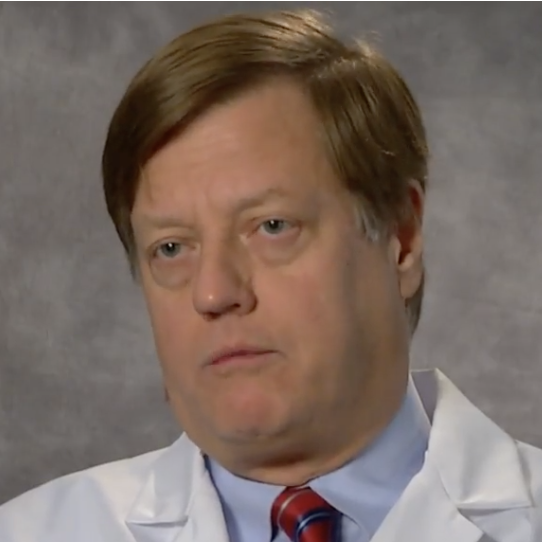 Richard Maas, M.D., Ph.D. is Professor of Medicine at HMS and has served as Chief of the Division of Genetics at BWH for the past 20 years. His research focuses on identifying the genetic causes of challenging undiagnosed human disease. In this capacity, he directs Brigham Genomic Medicine (BGM), an interdisciplinary BWH-wide program that integrates clinicians and researchers in a team effort to develop DNA genomic sequence based medicine. Besides assisting in more precise diagnosis and patient care, BGM efforts are being leveraged to identify novel therapeutic targets and to obtain insight into new cell biology.
Richard Maas, M.D., Ph.D. is Professor of Medicine at HMS and has served as Chief of the Division of Genetics at BWH for the past 20 years. His research focuses on identifying the genetic causes of challenging undiagnosed human disease. In this capacity, he directs Brigham Genomic Medicine (BGM), an interdisciplinary BWH-wide program that integrates clinicians and researchers in a team effort to develop DNA genomic sequence based medicine. Besides assisting in more precise diagnosis and patient care, BGM efforts are being leveraged to identify novel therapeutic targets and to obtain insight into new cell biology.
[riven_container]
 Calum MacRae, M.D., Ph.D. is Vice Chair for Scientific Innovation at the Department of Medicine at BWH and Associate Professor of Medicine at HMS. In addition, Dr. MacRae is a Principal Faculty Member at the Harvard Stem Cell Institute, and an Associate Member at the Broad Institute. Dr. MacRae is a cardiologist, geneticist, and developmental biologist whose research is focused on understanding the genetic contributions to common cardiovascular diseases using human studies and complementary high-throughput biology. His clinical interests include incorporation of genomics into medicine, systematic approaches to discovering new phenotypes and the role of disruptive innovation in refashioning the clinical-translational interface. Dr. MacRae is the leader of One Brave Idea an initiative funded by the American Heart Association, Google’s life sciences company Verily LLC and AstraZeneca to improve the detection, stratification, prevention and treatment of Coronary Heart Disease.
Calum MacRae, M.D., Ph.D. is Vice Chair for Scientific Innovation at the Department of Medicine at BWH and Associate Professor of Medicine at HMS. In addition, Dr. MacRae is a Principal Faculty Member at the Harvard Stem Cell Institute, and an Associate Member at the Broad Institute. Dr. MacRae is a cardiologist, geneticist, and developmental biologist whose research is focused on understanding the genetic contributions to common cardiovascular diseases using human studies and complementary high-throughput biology. His clinical interests include incorporation of genomics into medicine, systematic approaches to discovering new phenotypes and the role of disruptive innovation in refashioning the clinical-translational interface. Dr. MacRae is the leader of One Brave Idea an initiative funded by the American Heart Association, Google’s life sciences company Verily LLC and AstraZeneca to improve the detection, stratification, prevention and treatment of Coronary Heart Disease.
[riven_container]
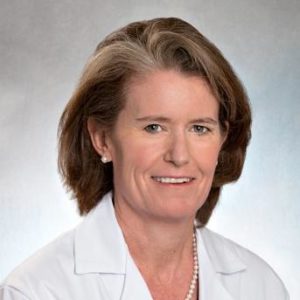 Elizabeth Ann Mittendorf, M.D., Ph.D.is the Rob and Karen Hale Distinguished Chair in Surgical Oncology, Director of Research in Breast Surgical Oncology, and Director of the Breast Immuno-Oncology program at the BWH, Dana-Farber Cancer Institute (DFCI). She focuses her clinical and laboratory efforts on the study of breast cancer with a specific interest in immunotherapy. She has been the principal investigator on numerous trials investigating cancer vaccines including an investigator-initiated multicenter phase II trial investigating vaccination in combination with trastuzumab in HER2-positive patients. Dr. Mittendorf is also the principal investigator on two investigator-initiated pre-surgical studies evaluating immune checkpoint blockade agents. Her laboratory is investigating the impact of standard and experimental therapies on immunologic aspects of the tumor microenvironment in order to inform rational trials of immunotherapeutic agents in breast cancer. Dr. Mittendorf has published extensively on a multitude of subjects related to breast cancer and surgical management of the disease to include incorporation of biologic factors into staging, management of the axilla, and surgery following receipt of neoadjuvant chemotherapy.
Elizabeth Ann Mittendorf, M.D., Ph.D.is the Rob and Karen Hale Distinguished Chair in Surgical Oncology, Director of Research in Breast Surgical Oncology, and Director of the Breast Immuno-Oncology program at the BWH, Dana-Farber Cancer Institute (DFCI). She focuses her clinical and laboratory efforts on the study of breast cancer with a specific interest in immunotherapy. She has been the principal investigator on numerous trials investigating cancer vaccines including an investigator-initiated multicenter phase II trial investigating vaccination in combination with trastuzumab in HER2-positive patients. Dr. Mittendorf is also the principal investigator on two investigator-initiated pre-surgical studies evaluating immune checkpoint blockade agents. Her laboratory is investigating the impact of standard and experimental therapies on immunologic aspects of the tumor microenvironment in order to inform rational trials of immunotherapeutic agents in breast cancer. Dr. Mittendorf has published extensively on a multitude of subjects related to breast cancer and surgical management of the disease to include incorporation of biologic factors into staging, management of the axilla, and surgery following receipt of neoadjuvant chemotherapy.
[riven_container]
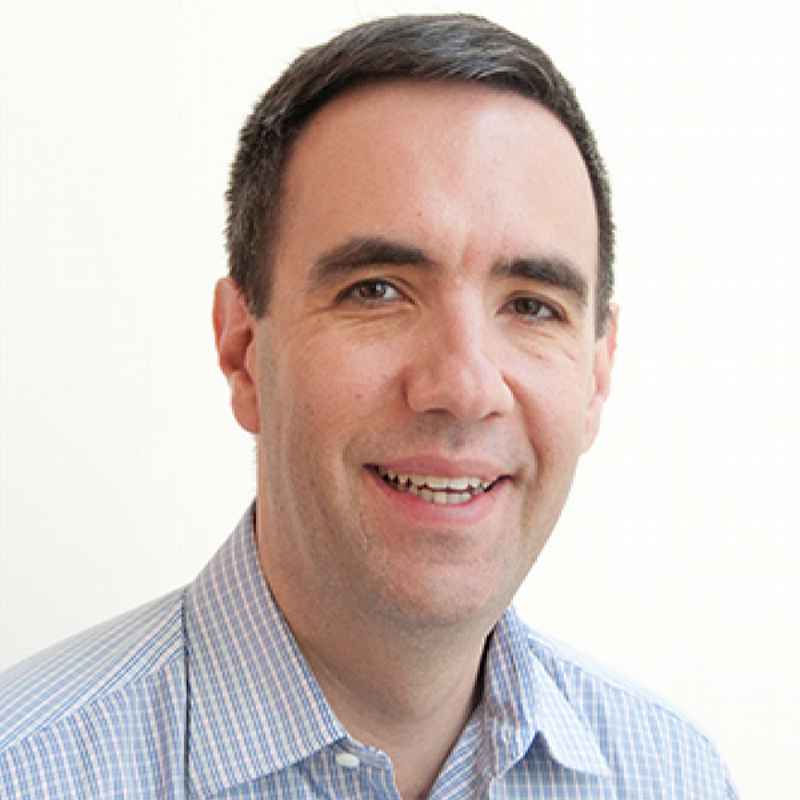 Anthony Philippakis, M.D., Ph.D. is the chief data officer of the Broad Institute of MIT and Harvard, where he leads the Data Sciences Platform. He is also a cardiologist at BWH, where his primary focus is caring for patients with rare, genetic, cardiovascular diseases. Dr. Philippakis is committed to bringing genomic sequencing and data science into the practice of clinical medicine. He co-chairs the Scientific Advisory Board of Global Genes, is a strategic advisor to the American Heart Association, and sits on the Clinical Working Group of the Global Alliance for Genomics and Health. In addition to his roles at the Broad and BWH, he is a venture partner at Google Ventures, focusing on life sciences and technology. Philippakis received his M.D. from HMS and Ph.D. in biophysics at Harvard University. He studied mathematics at Yale University as an undergraduate, and later earned a master’s degree in mathematics from Cambridge University.
Anthony Philippakis, M.D., Ph.D. is the chief data officer of the Broad Institute of MIT and Harvard, where he leads the Data Sciences Platform. He is also a cardiologist at BWH, where his primary focus is caring for patients with rare, genetic, cardiovascular diseases. Dr. Philippakis is committed to bringing genomic sequencing and data science into the practice of clinical medicine. He co-chairs the Scientific Advisory Board of Global Genes, is a strategic advisor to the American Heart Association, and sits on the Clinical Working Group of the Global Alliance for Genomics and Health. In addition to his roles at the Broad and BWH, he is a venture partner at Google Ventures, focusing on life sciences and technology. Philippakis received his M.D. from HMS and Ph.D. in biophysics at Harvard University. He studied mathematics at Yale University as an undergraduate, and later earned a master’s degree in mathematics from Cambridge University.
[riven_container]
 Deepak Rao, M.D., Ph.D. is an Assistant Professor of Medicine at Harvard Medical School and co-Director of the BWH Human Immunology Center. His research uses high dimensional analyses of patient samples, coupled with mechanistic studies, to define immunologic pathways that drive autoimmune diseases. He recently led a study published in Nature that discovered a unique T cell population called ‘peripheral helper T cells’ that promotes inflammation in rheumatoid arthritis. His efforts are directed at identifying immune cell pathways that can serve as biomarkers of treatment response or new therapeutic targets in rheumatic diseases.
Deepak Rao, M.D., Ph.D. is an Assistant Professor of Medicine at Harvard Medical School and co-Director of the BWH Human Immunology Center. His research uses high dimensional analyses of patient samples, coupled with mechanistic studies, to define immunologic pathways that drive autoimmune diseases. He recently led a study published in Nature that discovered a unique T cell population called ‘peripheral helper T cells’ that promotes inflammation in rheumatoid arthritis. His efforts are directed at identifying immune cell pathways that can serve as biomarkers of treatment response or new therapeutic targets in rheumatic diseases.
[riven_container]
 Clemens R. Scherzer, M.D., is a physician-scientist and Founding Director of the Center for Advanced Parkinson’s Disease Research. He is the Director of the Precision Neurology Program of Brigham & Women’s Hospital and Associate Professor of Neurology at HMS. Scherzer uses genomes, big data, and deep cohorts to develop a predictive and proactive health care for Parkinson’s and neurologic diseases. His interdisciplinary lab includes computer scientists, biologists, and clinicians. In analogy to how a search engine targets advertisements to a user, the lab’s goal is to match drugs and tests to a patient based on a search of his entire disease biology (Science Translational Medicine, 2010; Science, 2017). To predict how the human genome codes brain cells in health and disease, Scherzer is establishing a Brain Cell Encyclopedia of transcribed elements in human brains (Nature Neuroscience, 2018). Scherzer received the Dr. Paul Beeson and the George C. Cotzias Memorial Awards, and is on the Boards of the American Parkinson Disease Foundation, Neurogenetics and Biomarkers in Medicine.
Clemens R. Scherzer, M.D., is a physician-scientist and Founding Director of the Center for Advanced Parkinson’s Disease Research. He is the Director of the Precision Neurology Program of Brigham & Women’s Hospital and Associate Professor of Neurology at HMS. Scherzer uses genomes, big data, and deep cohorts to develop a predictive and proactive health care for Parkinson’s and neurologic diseases. His interdisciplinary lab includes computer scientists, biologists, and clinicians. In analogy to how a search engine targets advertisements to a user, the lab’s goal is to match drugs and tests to a patient based on a search of his entire disease biology (Science Translational Medicine, 2010; Science, 2017). To predict how the human genome codes brain cells in health and disease, Scherzer is establishing a Brain Cell Encyclopedia of transcribed elements in human brains (Nature Neuroscience, 2018). Scherzer received the Dr. Paul Beeson and the George C. Cotzias Memorial Awards, and is on the Boards of the American Parkinson Disease Foundation, Neurogenetics and Biomarkers in Medicine.
[riven_container]
 David A. Silbersweig, M.D. is Stanley Cobb Professor of Psychiatry, and Academic Dean (Partners Healthcare), at HMS. He is Chairman of the Department of Psychiatry, and Co-Director of the Center for the Neurosciences at BWH. He is a neurologist and psychiatrist, and Co-Director of the Functional Neuroimaging Laboratory. He has played a leading role in the development of neuropsychiatric functional neuroimaging and in the evolving field of neuropsychiatry. He brings extensive experience in the design and execution of advanced functional neuroimaging research studies. His work also integrates such systems-level neuroscience with immunology, genetics, neuroendocrinology and neurophysiology, to develop biomarkers and targeted therapeutics for neuropsychiatric disorders.
David A. Silbersweig, M.D. is Stanley Cobb Professor of Psychiatry, and Academic Dean (Partners Healthcare), at HMS. He is Chairman of the Department of Psychiatry, and Co-Director of the Center for the Neurosciences at BWH. He is a neurologist and psychiatrist, and Co-Director of the Functional Neuroimaging Laboratory. He has played a leading role in the development of neuropsychiatric functional neuroimaging and in the evolving field of neuropsychiatry. He brings extensive experience in the design and execution of advanced functional neuroimaging research studies. His work also integrates such systems-level neuroscience with immunology, genetics, neuroendocrinology and neurophysiology, to develop biomarkers and targeted therapeutics for neuropsychiatric disorders.
[riven_container]
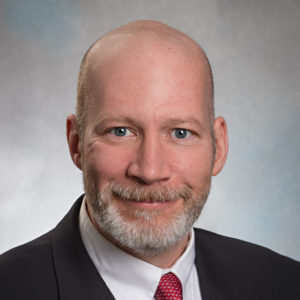 Edwin K. Silverman, M.D., Ph.D. is chief of the Channing Division of Network Medicine at BWH, where he leads division efforts to develop and extend research and educational activities around the application of systems biology approaches to complex diseases. Dr. Silverman is also a Professor of Medicine at HMS. He is a pulmonologist and genetic epidemiologist whose research focuses on the genetics of chronic obstructive pulmonary disease. He is the Principal Investigator of multiple studies of COPD genetics. His recent work has focused on identifying functional genetic variants influencing COPD susceptibility; integrating imaging, physiology, clinical characterization, and genetics to identify COPD subtypes; and defining networks of interacting biological factors in COPD pathogenesis.
Edwin K. Silverman, M.D., Ph.D. is chief of the Channing Division of Network Medicine at BWH, where he leads division efforts to develop and extend research and educational activities around the application of systems biology approaches to complex diseases. Dr. Silverman is also a Professor of Medicine at HMS. He is a pulmonologist and genetic epidemiologist whose research focuses on the genetics of chronic obstructive pulmonary disease. He is the Principal Investigator of multiple studies of COPD genetics. His recent work has focused on identifying functional genetic variants influencing COPD susceptibility; integrating imaging, physiology, clinical characterization, and genetics to identify COPD subtypes; and defining networks of interacting biological factors in COPD pathogenesis.
[riven_container]
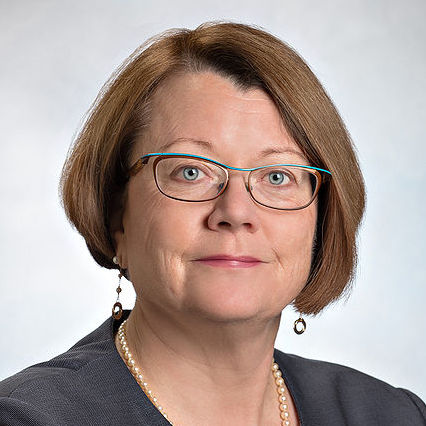 Clare Tempany-Afdhal, MB, BAO, B.Ch. is the Ferenc A. Jolesz MD Professor of Radiology, HMS; Vice Chair, Radiology Research, BWH; Co-director, Imaging Platform of Biomedical Research Institute (BRI). She is a world-renowned expert on clinical applications of MR imaging and leads a multidisciplinary research team of radiologists, radiation oncologists, surgeons, medical oncologists, computer scientists, physicists and mathematicians. Dr. Tempany heads an active prostate cancer research group, encompassing basic research in Image Guided Therapy and multiple clinical trials. She co-direct the Advanced Multimodal Image Guided Operating (AMIGO) Suite, a unique translational research set of state-of-the-art operating and procedure rooms. She obtained her medical degree-Royal College of Surgeons in Ireland, Diagnostic Radiology Residency-Loyola UMC, and MR Fellowship-Johns Hopkins.
Clare Tempany-Afdhal, MB, BAO, B.Ch. is the Ferenc A. Jolesz MD Professor of Radiology, HMS; Vice Chair, Radiology Research, BWH; Co-director, Imaging Platform of Biomedical Research Institute (BRI). She is a world-renowned expert on clinical applications of MR imaging and leads a multidisciplinary research team of radiologists, radiation oncologists, surgeons, medical oncologists, computer scientists, physicists and mathematicians. Dr. Tempany heads an active prostate cancer research group, encompassing basic research in Image Guided Therapy and multiple clinical trials. She co-direct the Advanced Multimodal Image Guided Operating (AMIGO) Suite, a unique translational research set of state-of-the-art operating and procedure rooms. She obtained her medical degree-Royal College of Surgeons in Ireland, Diagnostic Radiology Residency-Loyola UMC, and MR Fellowship-Johns Hopkins.
[riven_container]
 Eliezer Van Allen, M.D. is an Assistant Professor of Medicine at HMS, a clinician at Dana-Farber/Partners Cancer Care, and an Associate Member at the Broad Institute. His research focuses on computational cancer genomics, the application of new technologies to precision cancer medicine, and resistance to targeted therapeutics. As both a computational biologist and medical oncologist, he has specific expertise in clinical computational oncology and the development of algorithms to analyze and interpret genomic data for clinically focused questions.
Eliezer Van Allen, M.D. is an Assistant Professor of Medicine at HMS, a clinician at Dana-Farber/Partners Cancer Care, and an Associate Member at the Broad Institute. His research focuses on computational cancer genomics, the application of new technologies to precision cancer medicine, and resistance to targeted therapeutics. As both a computational biologist and medical oncologist, he has specific expertise in clinical computational oncology and the development of algorithms to analyze and interpret genomic data for clinically focused questions.
[riven_container]
 Sushrut Waikar, M.D., M.PH. is the Constantine L. Hampers, MD Distinguished Chair of Renal Medicine at BWH and Associate Professor of Medicine at HMS. Dr. Waikar is the Director of Renal Translational Research and leads several NIH-sponsored studies on biomarkers of kidney disease. He uses epidemiologic, translational, and interventional studies to address clinically important questions in nephrology. Dr. Waikar is the Principal Investigator of the Harvard Chronic Kidney Disease Research Biopsy Center, a recruitment site in the NIH-funded Kidney Precision Medicine Project. Dr. Waikar is also an active clinician and co-directs Renal Ambulatory Services at BWH.
Sushrut Waikar, M.D., M.PH. is the Constantine L. Hampers, MD Distinguished Chair of Renal Medicine at BWH and Associate Professor of Medicine at HMS. Dr. Waikar is the Director of Renal Translational Research and leads several NIH-sponsored studies on biomarkers of kidney disease. He uses epidemiologic, translational, and interventional studies to address clinically important questions in nephrology. Dr. Waikar is the Principal Investigator of the Harvard Chronic Kidney Disease Research Biopsy Center, a recruitment site in the NIH-funded Kidney Precision Medicine Project. Dr. Waikar is also an active clinician and co-directs Renal Ambulatory Services at BWH.
[riven_container]
 George Washko, M.D.is a clinical investigator in the Division of Pulmonary and Critical Care Medicine at BWH. He began his career in research focused on therapeutic trials in COPD. The heterogeneity of disease and broad range of responses to pharmacologic and device based intervention he observed, led him to build a lab dedicated to the objective characterization of medical images to stratify disease, detect previously undiagnosed comorbid conditions and provide intermediate study endpoints for clinical investigation. By providing enhanced image interpretation that integrates multiple tiers of clinical data, Dr. Washko’s goal is to apply advanced machine learning techniques, including deep learning, to clinically acquired medical imaging data to enable clinical care and population management. This will provide a health care system with new insight into the burden and distribution of disease in their network. The Washko’s lab is also developing automated algorithms for the interpretation of chest x-rays to be deployed in resource limited settings where technology such as CT or MRI is not readily available. Dr. Washko has been involved in several national and international multicenter collaborations spanning a range of acute and chronic medical conditions from ARDS to sarcopenia and the metabolic syndrome.
George Washko, M.D.is a clinical investigator in the Division of Pulmonary and Critical Care Medicine at BWH. He began his career in research focused on therapeutic trials in COPD. The heterogeneity of disease and broad range of responses to pharmacologic and device based intervention he observed, led him to build a lab dedicated to the objective characterization of medical images to stratify disease, detect previously undiagnosed comorbid conditions and provide intermediate study endpoints for clinical investigation. By providing enhanced image interpretation that integrates multiple tiers of clinical data, Dr. Washko’s goal is to apply advanced machine learning techniques, including deep learning, to clinically acquired medical imaging data to enable clinical care and population management. This will provide a health care system with new insight into the burden and distribution of disease in their network. The Washko’s lab is also developing automated algorithms for the interpretation of chest x-rays to be deployed in resource limited settings where technology such as CT or MRI is not readily available. Dr. Washko has been involved in several national and international multicenter collaborations spanning a range of acute and chronic medical conditions from ARDS to sarcopenia and the metabolic syndrome.


